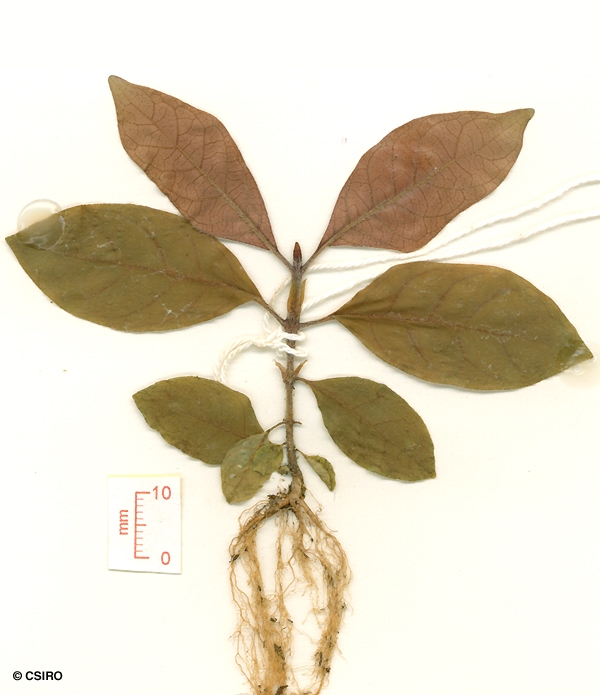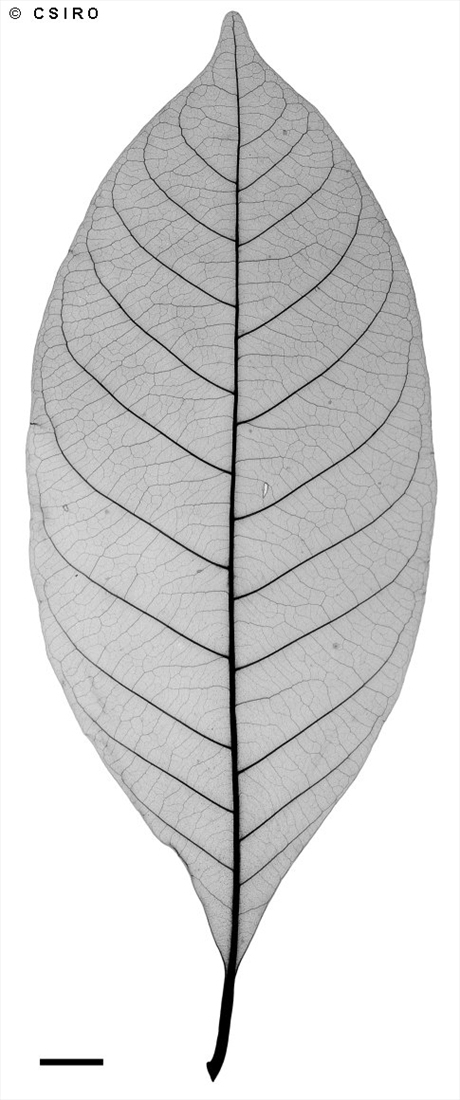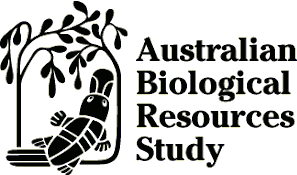Australian Tropical Rainforest Plants - Online edition
Wendlandia urceolata C.T.White
White, C.T. (1939) Proceedings of the Royal Society of Queensland 50: 79. Type: Foothills of Mt. Bartle Frere, alt. 800 m., S.F.Kajewski, No. 1349 (flowering specimens and a few old seed capsules).
Usually a small tree less than 30 cm dbh.
Stipules +/- elliptic, about 15-20 x 7-8 mm. Stipule surface raised like a midrib towards the base but not pinnately veined. Stipule venation longitudinal, +/- parallel. Dark structures resembling insect eggs visible towards the base, on the inner surface of each stipule. Leaf blades about 9.5-20 x 2-6 cm. Midrib depressed on the upper surface of the leaf blade. Domatia are shallow pits full of hairs.
Inflorescence about 7-15 cm long, usually shorter than the leaves. Calyx tube (hypanthium) and/or pedicel glabrous, tube about 2 mm long, lobes about 0.3-0.4 mm long. Corolla tube about 2.5-3 mm long, lobes about 0.5-1 mm long, rounded at the apex. Stamens protruding beyond the corolla tube with the staminal filaments fused to form a pink to red staminal tube which surrounds the style. Anthers yellow, about 2 mm long, filaments about 2.5-3 mm long. Ovary with numerous ovules in each locule. Style about 5 mm long.
Fruits about 6-7 mm long. Seeds very small, about 1 mm long, variable in shape. Testa +/- reticulate.
First pair of leaves ovate, clothed in long white hairs particularly on the upper surface. At the tenth leaf stage: leaf blade +/- elliptic, base cuneate or attenuate, both the upper and lower surfaces hairy, at least when young; stipules semi-persistent, interpetiolar, hairy towards the base, +/- narrowly bullet-shaped, about 6-8 x 2 mm, acuminate at the apex. Stem clothed in long white hairs. Seed germination time 103 days.
Endemic to NEQ. Altitudinal range from 600-1190 m. Grows as an understory tree in well developed upland and mountain rain forest.







